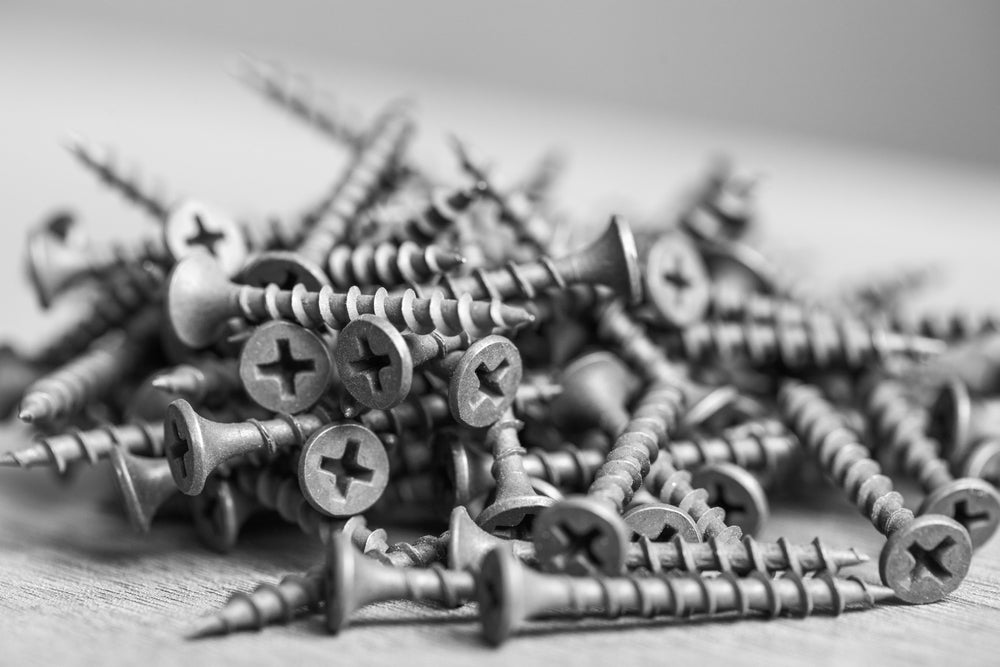Screws are an integral component in construction and machinery, similar to bolts but with distinct differences. Bolts pair with nuts to clamp unthreaded parts, whereas screws are designed to engage with internal threads or to create their own thread within the materials they penetrate.
A screw's core function is to fasten objects, with the majority being self-threading or self-tapping, eliminating the need for pre-tapped holes. Various screw types cater to different applications, and it's crucial to select the appropriate one based on the material and purpose.
Types of Screws and Their Uses
Overview of Crucial Screw Types
Countersunk Screw:
Tailored for applications where a flush finish is essential, these screws are ideal for creating a smooth, unobtrusive surface. They are extensively used in carpentry, cabinetry, and manufacturing settings where the screw head needs to be either level with or below the material surface. Their design allows them to fit
neatly into countersunk holes, ensuring that the head does not protrude and interrupt the overall aesthetic or functional surface.
Deck Screw:
Engineered for outdoor decking projects, these screws are built to withstand the elements. Their corrosion-resistant coating makes them suitable for use in all weather conditions, protecting against rust and degradation. With a design that includes a sharp point and aggressive thread pattern, they are highly effective in penetrating and securely gripping wood, ensuring long-lasting stability in outdoor wooden structures like decks and patios.
Hex Lag Screw:
Known for their robust construction, hex lag screws are used in applications requiring high strength. They are especially useful in securing heavy lumber and other load-bearing materials. The hexagonal head allows for a strong grip with a wrench, providing the necessary torque for heavy-duty applications in construction and framing.
Machine Screw:
These precision-engineered screws are a mainstay in mechanical and electronic industries. Designed for accuracy, they fit perfectly into pre-drilled holes in metal or plastic. Available in various head styles, like flat, round, and pan, and drive types, such as Phillips or slotted, machine screws offer versatility and reliability for securing components in machinery and electronic devices.
Self-Drilling Screw:
A time-saver in construction and metalworking, self-drilling screws eliminate the need for pre-drilled holes. Their sharp, cutting tip allows them to bore into metal, creating their own threads as they are driven. This not only speeds up the assembly process but also ensures a secure fit in metal sheets and frames.
Sheet Metal Screw:
As the name suggests, these screws are specifically designed for joining sheet metal but also work effectively with plastic and wood. They have a sharp, threaded design that ensures a tight grip in thin materials. The versatility of the head styles, including flat, pan, and oval, allows them to be used in various applications, providing a secure fastening solution in HVAC systems, metal fabrications, and more.
Wood Screw:
Exclusively crafted for woodworking, these screws feature sharp points and coarse threads to grip into wood easily and securely. Their design allows for quick and efficient insertion into all types of wood, minimizing splitting while providing a strong hold, essential for furniture making, carpentry, and other wood-based projects.
Selecting the right screw for the job is paramount, as it ensures the integrity of the assembly and the ease of future maintenance or disassembly if required. Each screw type is tailored for specific scenarios, offering a range of head types and threading styles to suit various materials and applications.

